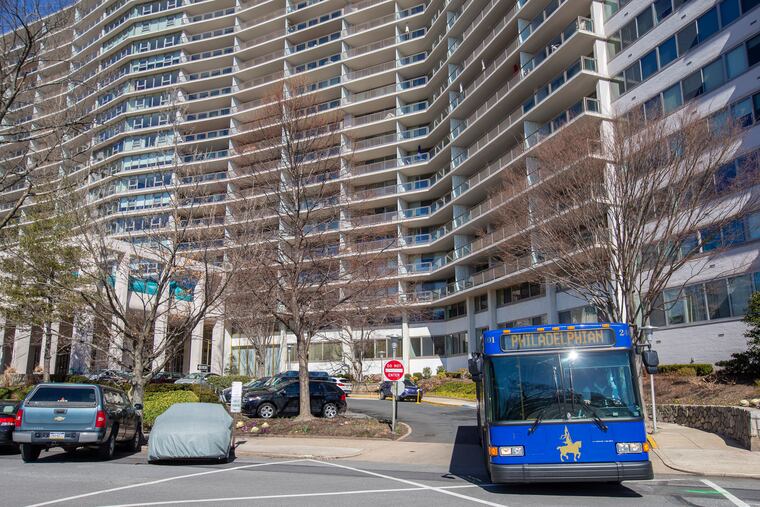No, vaccine seekers, your condo is not a congregate living facility | Opinion
Apartment buildings and condo associations shouldn’t willfully misinterpret terms like “congregate living” to help their residents cut the vaccine line.

No. Your fancy condo is not a congregate living facility.
I have spent the last months thinking — fantasizing, even — about when I might be eligible to receive a COVID-19 vaccine. I’ve added my name to the city’s waiting list. I’ve tracked vaccinations across the city. I’ve pictured myself making the walk to the Pennsylvania Convention Center, and even pondered what I will wear.
The past year of my professional life, much like my personal life, has been dominated by COVID-19. As a medical ethicist, I have spent a considerable amount of time thinking about COVID-19 vaccines — how governments should and should not promote their uptake, as well as how to distribute them equitably.
For these reasons, it piqued both my personal and professional interest to receive an email from my condo association announcing that all residents are eligible for on-site COVID-19 vaccination because our condo association “falls under congregate living.”
» READ MORE: Where can I get a COVID-19 vaccine in the Philly area? Use our lookup tool.
Philadelphia is currently in phase 1b of its vaccine distribution plan, which includes “people who live and work in congregate living settings, like prisons, shelters for the homeless, drug and alcohol treatment, psychiatric facilities, rehabilitation, and specialized services housing.” Condo associations and apartment buildings are notably absent from (and not like the other things on) this list. In written guidance, the city has further specified that the term “congregate settings” refers to “living situations where people live or work in proximity and it is difficult to maintain social distancing.” Condo associations and apartment buildings do not clearly meet this definition. Resolving any ambiguity, the city Health Department has stated that the congregate living designation is not intended for private residences.
That hasn’t prevented luxury apartment buildings and condo associations across the city from attempting to arrange vaccines for their residents.
It is undoubtedly a good thing for more people to be vaccinated against COVID-19. Lack of access to vaccination can hinder uptake even among people who want to be vaccinated. Removing barriers — such as by making vaccines available when and where people want them — should be encouraged as a public health strategy. Moreover, taking vaccines to where people live can reach otherwise vulnerable populations. New York City is, for example, now sending field teams into the homes of thousands of homebound seniors.
» READ MORE: Philly suburbs can’t inoculate everyone in group 1A by May 1 unless they get a lot more vaccine, officials say
COVID-19 vaccines are presently, however, a scarce resource in Philadelphia, though this may soon change. Because demand outstrips supply, available vaccines should be allocated in accordance with the city’s phased distribution plan, which represents an effort to reduce the burden of COVID-19 sickness and death, to promote fairness, and to address notable disparities in vaccine uptake.
Apartment buildings and condo associations shouldn’t willfully misinterpret terms like “congregate living” to help their residents cut the vaccine line. If they want to offer on-site vaccination as an amenity to residents, they — and the pharmacies they work with — must ensure compliance with Philadelphia’s vaccine prioritization scheme. To do otherwise is to act from a sense of privilege and with an indifference to the well-being of others in the community that has been sadly common during COVID-19 vaccine distribution.
I emailed my neighbors to share my concerns about our problematic “eligibility.” I received several replies from unvaccinated neighbors that less than politely indicated I should keep my opinions to myself and get out of their way. Others expressed a belief that if other apartment buildings and condo associations are doing it (and they are), we should, too. I am sympathetic to the impatience expressed by these neighbors, but not to their arguments.
I would also like to be vaccinated. But each of us has an ethical obligation to wait our turn.
Emily A. Largent is a professor of medical ethics and health policy at the University of Pennsylvania Perelman School of Medicine and a Philadelphia resident.